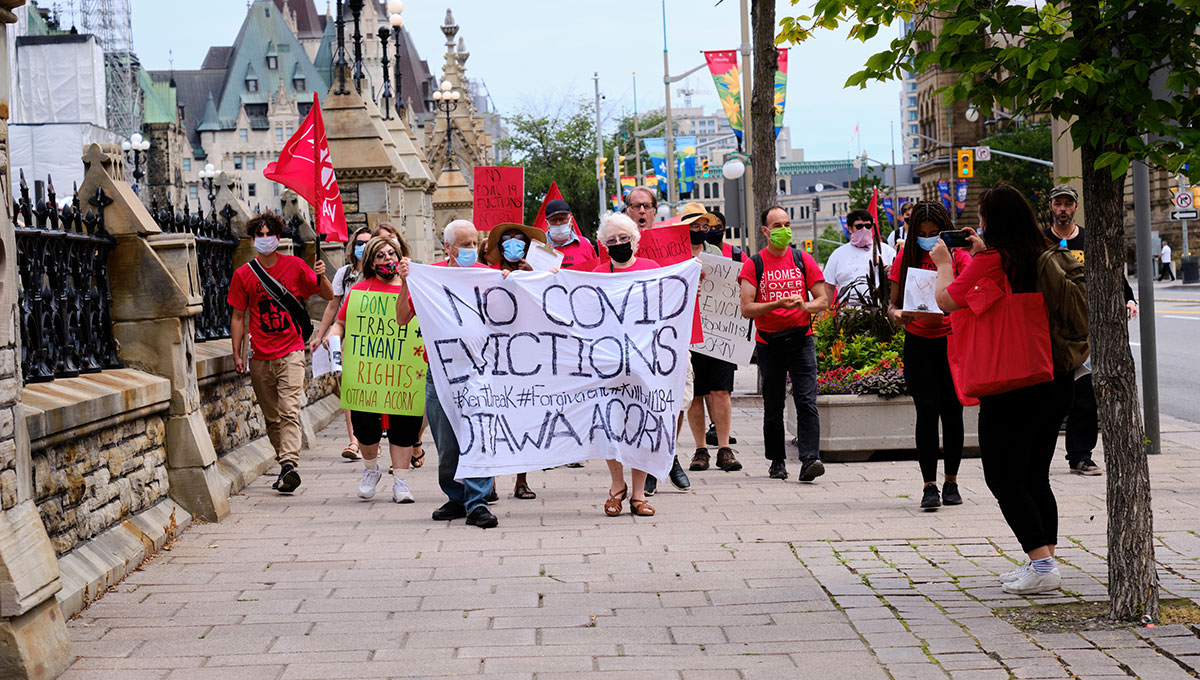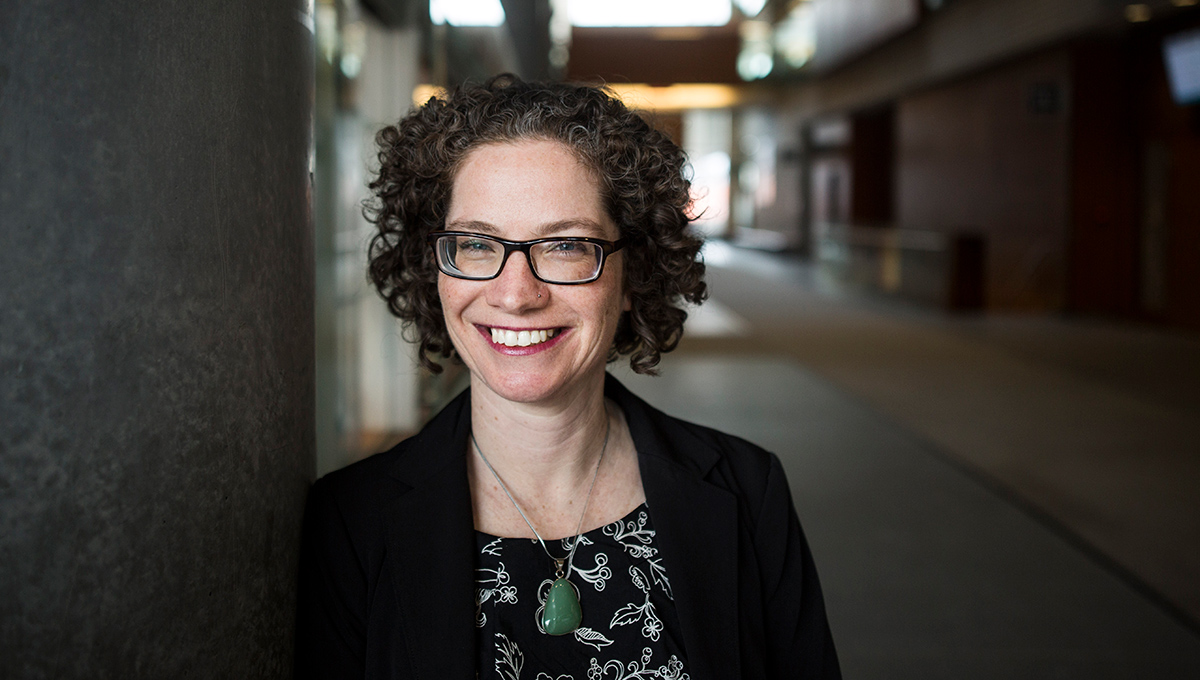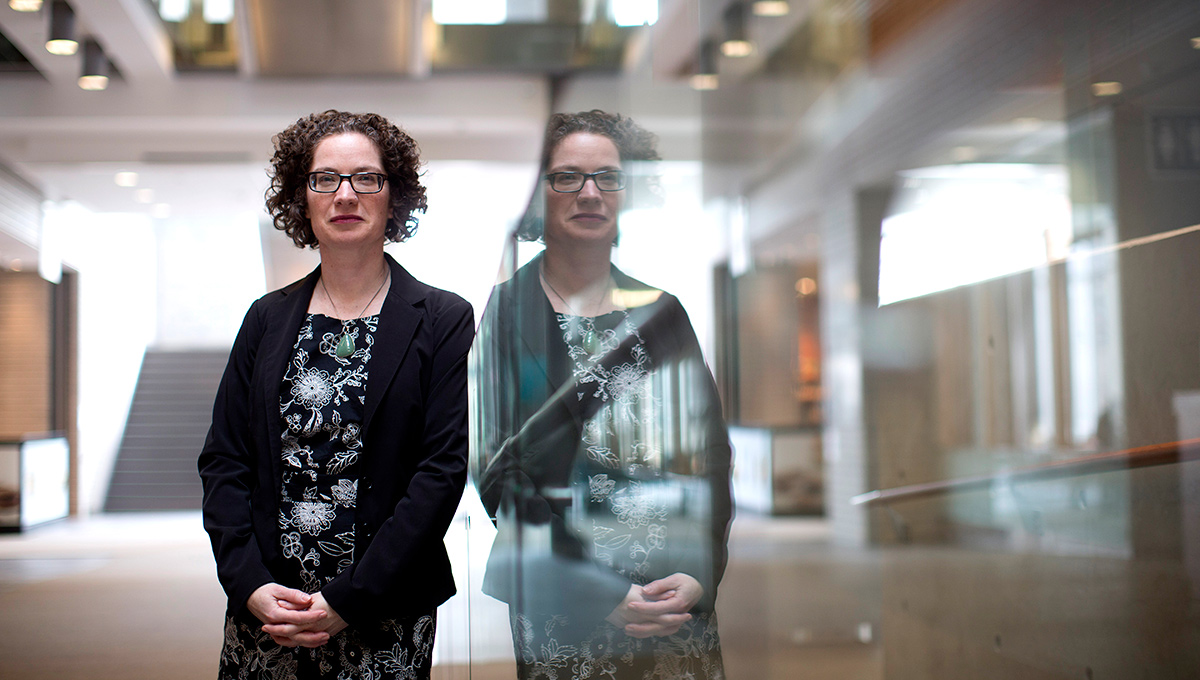By Tyrone Burke
Photos by Chris Roussakis
“When you’re young, and you end up on the street, the first thing that you lose is your sense of belonging. But then you get a new sense of belonging from being a street person—you can survive,” says Alice Conroy.
Conroy started sleeping outside at age 13, and was living on the street full-time at 16. Now, she’s sharing her knowledge of youth homelessness and housing through the Ottawa regional team of a national project on affordable housing. The multidisciplinary team consists of four youth co-researchers who have lived homelessness, three graduate students, and the Ontario regional academic lead, Jacqueline Kennelly. Their work will form part of a five-year study of youth experiences of affordable housing in Ottawa.

Protesters calling for extension of forgiveness in July 2020.
“To sleep outside, you need to learn survival skills,” says Conroy.
“Where is it safe to sleep? Where can you do your laundry? Which dumpster should you dive in to find something to eat? With all of that, you can’t really focus on the questions of who you are, and what you want to do with your life. A lot of people who are homeless in their teens or early 20s end up spending their late 20s figuring themselves out, instead of doing it when they were younger. That’s why it is so important to get teens off the street—so they can figure out who they want to be, and work on themselves sooner.”
The Ottawa regional project is one part of a Canada-wide initiative called People, Places, Policies and Prospects: Affordable Rental Housing for Those in Greatest Need. It’s being funded through a housing partnership grant from the Canada Mortgage and Housing Corporation’s National Housing Strategy, and Ottawa is one of four cities being studied.

Finding Suitable, Long-Term Housing for Young People
Research in Ottawa is being led by Prof. Kennelly, who works in Carleton’s Department of Sociology and Anthropology. She will be examining how well different types of affordable housing for young people actually work—as well as the factors that make it more challenging for young people to find suitable, long-term housing.
“To direct policy, we need more research about what types of housing produce the best outcomes,” says Kennelly.
“There has been a shift over the last several decades toward funding rent supplements, rather than building public housing. Rent supplements give money directly to people who are experiencing housing instability. Some are tied to individual units, while others can be used in the rental market. They are more immediate than building new public housing, or reinvesting in existing housing, but it is not clear whether they are as effective.”

Prof. Jacqueline Kennelly
The argument for rent subsidies has primarily been an economic one. Rent subsidies are cheaper to deliver because they don’t require major investments in building construction or ongoing maintenance.
“But nobody has found out what rent subsidies really mean for the people living in the housing,” says Kennelly.
“The policy question that we want to answer is whether there is a justification for rent supplements, versus putting money into public housing. The answer is likely not going to be quite that straightforward. There are all sorts of confounding factors—location, housing quality, and a tenant’s relationship with the landlord or building managers. We’re trying to get a better sense of how all of these factors affect outcomes.”

The Experience of Homelessness
When youth move out of housing and return to the streets, it can be difficult for policy-makers to know exactly why this occurred. That’s one reason why it is important to Kennelly to ensure that the research team includes the perspectives of people who have lived the experience of homelessness. Conroy is joined by Leif Harris, Holly Petersen, and Blanca Desjarlais, and the team is rounded out by graduate students Andy Crosby, Mathieu Savage, and Genevieve Johnston.
“We know that young people’s experiences of homelessness cannot be directly mapped on to adult experiences of homelessness,” says Kennelly.
“Things can change so quickly in young people’s lives. It can be a period of life where so much is happening, and young people have specific needs. If we want to help support them out of homelessness, then those needs must be addressed. These can be developmental, educational, or otherwise. We hope that this research can tell us about which types of investment can make youth housing successful.”

Monday, November 23, 2020 in Community, Sociology and Anthropology
Share: Twitter, Facebook



